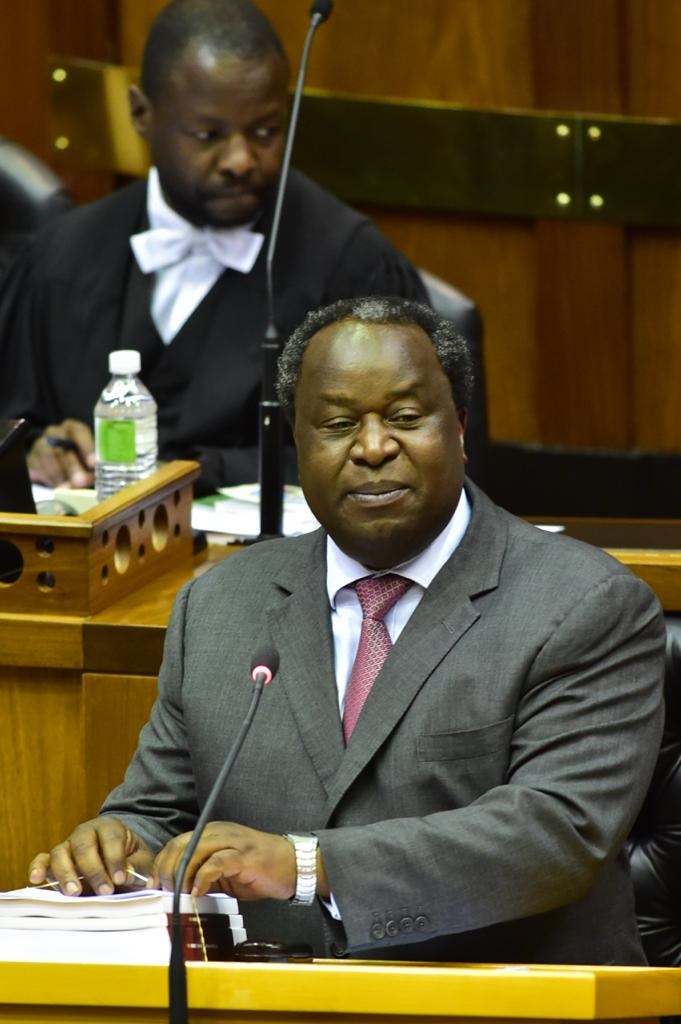
SA needs to find congruence between the noble promise of the Constitution and the lived reality of the majority, writes Thuli Madonsela
If we do not invest in the South Africa we want, we’ll continue to have the South Africa we have.
This thought hit me on reading the much-venerated budget presented by Finance Minister Tito Mboweni.
Some things the minister should be commended for are his bold, game-changing moves with regard to generating revenue for financing development through savings made from stopping opulent and unnecessary expenditure in the public sector.
It is on the investment side of the equation that I’m not entirely sure what change we are investing towards.
I was particularly impressed that the minister avoided the lazy route of increasing VAT, which some economists were encouraging him to take.
The truth is that VAT is an anti-poor regressive revenue collection system, even when a few items are insulated from it.
Read: Budget 2020: Mboweni cleans house
But how are we faring strategically, in investing in congruence with the constitutional vision and promises?
Are we investing in ventures that will yield the South Africa we want?
Judge Dennis Davis believes that we are not putting our money and policy choices where our constitutional vision expects us to go.
At the core of our troubled democracy is the lack of a coherent economic policy that is congruent with the societal architecture envisaged in the Constitution.
Davis, who is the judge president of the Competition Appeal Court, expressed concern while delivering the inaugural Social Justice Lecture at the recently named Adam Small Theatre at Stellenbosch University on World Day of Social Justice on February 20.
Did the budget cross the Rubicon regarding investing in congruence with the constitutional promise?
Are we investing towards transforming the apartheid, colonial and patriarchal legacies?
There is no question that in the past 26 years we have built a sound constitutional democracy which has confounded the prophets of doom who thought that one person, one vote would never work in the plural society that South Africa is.
However, we must agree with Davis that our democracy is in trouble.
We must concede that if we don’t speedily come up with a formula that will undo the social and economic architecture we inherited from years of legalised injustice and inept policy choices, coupled with corruption since the dawn of democracy, we risk losing the rule of law and social cohesion.
Davis warns that if we continue with the current incongruence between the constitutional promise and the lived reality of the majority, we will increase our democracy’s vulnerability to the weaponisation of social injustice.
He warns that the ever-expanding chasm between the constitutional promise and lived reality of the majority is cannon fodder for fascists and corrupt politicians masquerading as crusaders for economic empowerment of the poor and other marginalised groups globally.
The UN believes the same, hence its focus on closing the inequality gaps in pursuit of social justice this World Day of Social Justice.
Many had expected President Cyril Ramaphosa’s state of the nation address to mark a shift towards addressing this hunger for congruence between the constitutional dream and people’s lived reality.
Many analysts, including City Press editor in chief Mondli Makhanya, were not convinced that the president went far enough regarding inclusive sustainable economic growth and development.
Read: Mondli Makhanya: Tito Mboweni’s hope and gloom balance
I concur with the view that the president’s address was a considerable improvement from last year’s equivalent.
There were a few kernels of wisdom and promising initiatives, but the vision needs to be sharper and pathways a little clearer and cohesive.
The messaging should clarify what kind of society we seek to become, when we seek to do so, what short-term quick wins are, and what will constitute long-term investments that will yield in five or more years like a Chinese bamboo tree.
I was particularly encouraged by the compassionate tone towards the restless poor.
I liked the setting aside of 1% of the national budget for entrepreneurship, as I was impressed over consistency in the pursuit of the district-based development model.
Mboweni’s budget did the best in navigating a difficult change.
Many believe he passed the test in terms of creatively finding money from the system.
Regarding how he and his colleagues chose to invest, there were impressive shifts, but not enough to constitute a concise course of action.
What I and my colleagues at the Siyazakhela Thuma Enterprising Communities initiative and at the Social Justice M-Plan think-tank would have loved to hear is what we plan to do regarding investing in understanding and eradicating poverty and legacy inequality.
We wanted to hear what would be done to identify the deepest poverty enclaves, the affected demographics, the reasons therefor, and targeted investment for quick wins.
Evidence shows that countries which have successfully combatted poverty, such as China, are those that invested in locating where it was and what caused and/or influenced it as a basis for targeted investment in ending it.
The same has been done regarding combatting structural inequality.
To be fair, the budget speech only focused on growth. The truth, however, is that strategic redistribution can fuel growth.
Let’s consider the expected 1% gross domestic product growth.
It seems to presume retracing the economic development pathways we were on before the so-called lost decade.
Fair enough, there is more commitment to investing in young people and the start-up economy, but would we not benefit better from a targeted approach accompanied by a strategic investment legal framework that specifically targets economic growth in parts of the country linked to ending poverty and significantly reducing structural inequality?
As we invest, we need to bear in mind that people are not averages.
If we invest randomly, by simply targeting percentage outcomes and not specifically targeting those that are left behind in certain townships and villages, we risk leaving the left behind further behind.
China and Ghana provide worthy examples on targeting investment towards inclusive growth by starting with investing in research on why, who and where.
It’s also important to not focus on annual initiatives, but rather on sustained initiatives that may yield in five to 10 years’ time.
It may well be that Mboweni deliberately chose, at this stage, to address the pressing challenges curtailing a spiralling public debt.
Together with the president and other colleagues, Mboweni may still be crafting a long-term vision and resonant investment strategies.
That remains to be seen.
One thing for sure is that we can’t do what we have always done and hope for a different result.
This does not only apply to how we save money, but also to what we invest in. More specifically, are we investing in shared prosperity?
If we don’t invest right, we won’t yield right results. As Mboweni ponders his next move, may he take a moment to peruse Davis’ lecture.
A constitutionally congruent economic policy move will not only guarantee that we rise together and do so sustainably, it will also save our hard-earned democracy from predatory politically enterprising wolves in sheep skins.
Madonsela is law faculty trust chair in social justice at Stellenbosch University. She is the founder of Thuma Foundation and Social Justice M-Plan
 | ||||||||||||||||||||||||||
Get in touchCity Press | ||||||||||||||||||||||||||
| ||||||||||||||||||||||||||
| Rise above the clutter | Choose your news | City Press in your inbox | ||||||||||||||||||||||||||
| City Press is an agenda-setting South African news brand that publishes across platforms. Its flagship print edition is distributed on a Sunday. |




 Publications
Publications
 Partners
Partners









